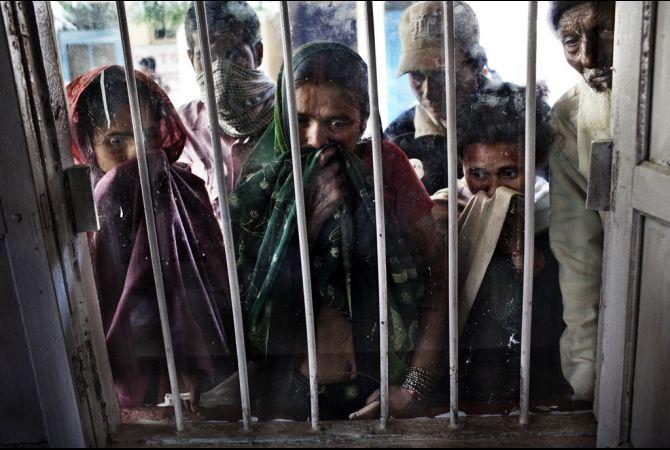Healing the world: Nepal
Patients at the Nata medical center in Birathnagar, Nepal wait to receive their papers for diagnosis. Tuberculosis is a major health problem in Nepal.
WASHINGTON — Here’s a fact-based snapshot of Nepal's health challenges and the aims of the U.S. government's Global Health Initiative:
NEPAL
Total GHI spending:
FY 2009: $22 million
FY 2010: $25 million
Total population: 29 million
GDP per capita: $438
Births that are assisted by a skilled attendant: 19 percent
Population using an effective water treatment method: 15 percent
Major health concerns in the country:
1) Child, newborn and maternal mortality are all very high
2) Infectious diseases are a problem, including many spread through water, food and vectors, as well as HIV, which is on the rise
GHI's main goals: Helping Nepal to build management and research capacity; encourage partnerships between nonprofit, private and public health care systems to overcome staffing shortages; help Nepal continue its significant health progress by extending services to more women, children and populations marginalized by remote geography or ethnic differences
GHI on the ground: American health experts will help Nepal become self-sufficient in its research and data collection; even though those things are happening successfully right now, they are largely done by non-Nepalese people and agencies.
(Sources: CIA; GHI country strategy documents; Kaiser Family Foundation; UN; www.foreignassistance.gov)
Funding for this project is provided by the Henry J. Kaiser Family Foundation as part of its U.S. Global Health Policy program.
This story is presented by The GroundTruth Project.
We want to hear your feedback so we can keep improving our website, theworld.org. Please fill out this quick survey and let us know your thoughts (your answers will be anonymous). Thanks for your time!
